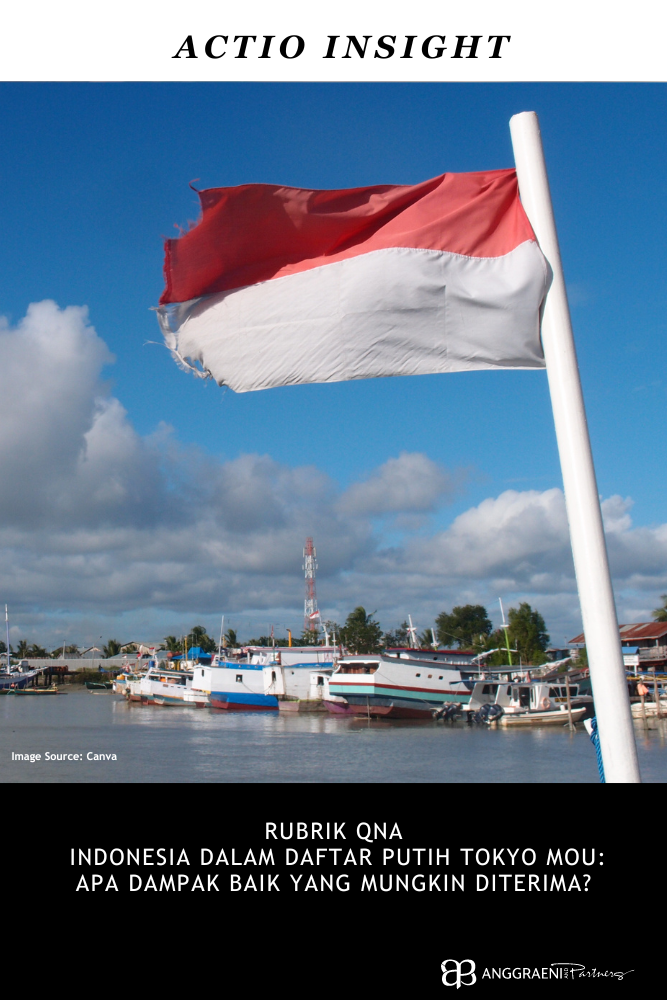- Home
- Capabilities
- ACTIO® Hub
- About Us
- Connect with Us
- AP Library
Q: What Is The Validity of Electronic Signatures (“TTE”) As a Means of Transaction in Indonesia?
A: First of all, we should know what is the definition of “signature” according to Indonesia Dictionary (“KBBI”) is “a sign as a symbol of the name written by hand by the person himself as a personal sign (has received).”
Further, “Electronic Information” means “one cluster or clusters of electronic data,1 including but not limited to writings, sounds, images, maps, drafts, photographs, electronic data interchange (EDI), electronics mails, telegrams, telex, telecopy or the like, letters, signs, figures, Access Codes, symbols or perforations that have been processed for meaning or understandable to persons qualified to understand them.” So, “Electronic Signature” means “a signature that contains Electronic Information that is attached to, associated or linked with other Electronic Information that is used for means of verification and authentication.”
The updated regulation Law No. 19 of 2016
(“Amendment”) on the Amendment to Law
No. 11 of 2008 on Electronic Information and
Transactions (“2008 EIT Law”), Amendment took
effect on 25 November 2016 does not amends the
previous regulation regarding the validity of the
TTE. Amendment has more concern on privacy
protection, meaning of Electronic System Provider
(“ESP”) and government right to terminate access or
order an ESP to terminate access.
So, in addressing whether TTE has legal consequences will be explained the conditions in written under Article 11 2008 EIT Law:
(1) TTE/Electronic Signatures shall have lawful legal force and legal effect to the extent satisfying the following requirements:
a. Electronic Signature-creation data shall be associated only with the Signatories/Signers;
b. Electronic Signature-creation data at the time the electronic signing process shall be only in the power of the Signatories/Signers;
c. Any alteration in Electronic Signatures that occur after the signing time is knowable;
d. Any alteration in Electronic Information associated with the Electronic Signatures after the signing time is knowable;
e. There are certain methods adopted to identify the identity of the Signatories/Signers; and
f. There are certain methods to demonstrate that the Signatories/Signers have given consent to the associated Electronic Information;
Elucidation of Article 11 Section (1):2
This Law grants recognition definitely that despite codes, TTE/Electronic Signatures have an equal position to manual signatures in general, with legal force and legal effect.
The requirements as intended by this Article shall be the requirements that minimally any TTE/Electronic Signature must satisfy.
(1) Further provisions on Electronic Signatures as intended by section (1) shall be regulated by Government Regulation.
Elucidation of Article 11 Section (2):
The Government Regulation concerned shall govern, inter alia, techniques, methods, means or process for creating TTE/Electronic Signatures.
TTE/Electronic Signature further regulated specifically on GR No. 82 of 2012 on Management System and Electronic Transaction on Chapter V from Article 52 till 58. Furthermore, this GR has classified the TTE/Electronic Signature into Certified TTE and Non-Certified TTE.3
In connection with the security and convenience of online transactions and transactions in general that requires TTE, we recommend in using a certified TTE to prevent the risk of forgery or misuse of your signature.
1. Great Indonesian Language Dictionary; 2. Law No. 11 of 2008 concerning Electronic Information and Transactions; 3. PP No. 82 of 2012 concerning the Implementation of Systems and Electronic Transactions.
RKT/HES


